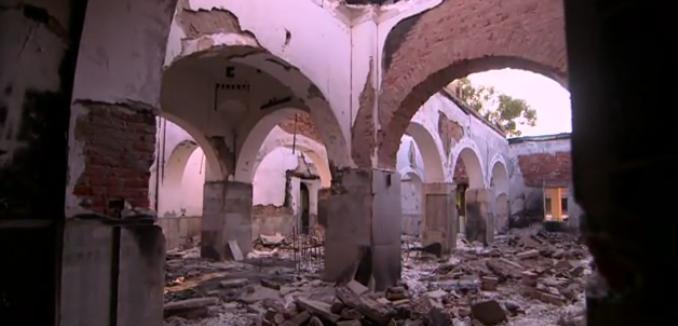The Christian Science Monitor reports on efforts being made across the Middle East in general – and Egypt in particular – to push back against Islamist violence targeting them and their communities. A recent massacre during a Coptic wedding refocused attention on the subject, but southern Egypt had in fact seen a rash of Christians kidnapped since 2011. Some of the abductions were crimes of opportunity, but others were of a different sort:
Christians are targeted because they do not have tribes or families who retaliate, unlike many Muslims in southern Egypt. As a tight-knit minority community, they are also perceived as able to raise large sums of money from friends and relatives for ransoms. And in Egypt, crimes against Christians have long gone routinely unpunished, fueling an environment of impunity. The kidnappings are mostly crimes of opportunity, not hate. But some suspect that the spike of the last three months has been driven by Islamists’ blame toward Christians, who they accuse of supporting the protests and military coup against Morsi.
Hudson Institute fellow Samuel Tadros had already last year decried the “end to 2,000 years of Christianity in Egypt.” The country’s Arab Spring revolution collapsed many of the country’s security institutions, “liberat[ing] the Islamists” to make good on the Muslim Brotherhood’s slogan to accomplish the “Islamization of life.” The army, responding to mass anti-government protests, eventually removed the Brotherhood-linked government of then-President Mohammed Morsi from power, but progress in reestablishing security has been halting
Violence against Christians also risks becoming endemic in other Middle East regions. Syrian Christians have been under sustained attack for months by jihadists. In September the largely Christian town of Maaloula was overrun by fighters identified with the al-Nusra Front. Islamists promised to make life “miserable for the Crusaders” and one man was reportedly killed when he refused to convert to Islam.
In Iran, American pastor Saeed Abedini has just been transferred to one of Iran’s most brutal prisons. Supporters are calling the move a death sentence, and it came despite a personal entreaty regarding Abedini by President Barack Obama during his recent phone call with President Hassan Rouhani.
Baylor University President Ken Starr on Sunday sketched out the national security implications of anti-Christian persecution, which eventually either takes the form of, or results in, the expulsion of Christians:
Perhaps most importantly, and most ironically, Christians have brought to the Middle East and elsewhere the ideas and institutions of freedom. While Christianity has its own mixed history, it has in the modern era championed equality under the law, economic opportunity and religious freedom for all people. If Middle Eastern countries continue to repress and expel their Christian populations, the fading prospect of stable, free societies will virtually disappear.
[Photo: CBS Evening News / YouTube ]




